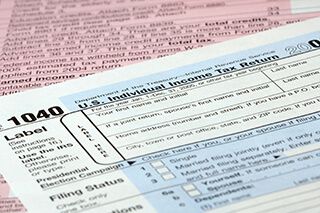Income Taxes & Retirement
How Tax Preparation Services Can Help You Retire
You've worked hard, saved, and invested for years, and now it's time to reap the rewards. If you've been looking forward to retirement, it would be a real shame to unexpectedly find out you don't have the financial resources to work with that you were expecting. Pensions, 401(k)s, and Social Security benefits are all subject to taxation. For many seniors, income taxes are their single largest expense, With the proper strategic planning, however, you can keep the most money possible in your pockets and live out your golden years to their full glory. Follow these tips or contact the experts at Rudolph M O'Neal III, CPA LLC for professional tax preparation servicesin the Anderson, SC area!
Understand the Regulations for Each Source of Income
Most retirees are supported by more than one stream of income. The taxes you will have to pay on Social Security depend on your overall retirement income level and the type of return you file. Typically, a higher total benefit amount will result in a greater percentage of it being taxable. You can use worksheets provided by the IRS to figure out how much you might owe ahead of time. When it comes to tax-deferred investments like IRAs, whether you receive the funds in a lump sum payment or regular withdrawals will determine the nature of the taxes due. We recommend scheduling a review with a knowledgeable income tax consultant to get an idea of which approach would be best in your case.
Relocate to Avoid or Minimize State Taxes
Certain states in our nation are much more tax-friendly than others. Shortly before retirement, consider moving somewhere such as Florida, Nevada, South Dakota, or Texas which has no state taxes at all. There are other places that offer special breaks specifically on retirement income. Additionally, be aware that federal law bars all states from collecting taxes on retirement benefits that were earned elsewhere.
Redistribute Investments for Superior Tax-Efficiency
Just because you've been paying into a particular retirement fund throughout your working career does not mean you need to maintain that account once you've actually retired. Reallocating your investment holdings into something like municipal bonds or dividend stocks is another way to save on potential tax costs. The sale of such securities can even help offset capital gains taxes as well, if you take a loss on them.
Contact Our Team to Request Income Tax Assistance
Everyone will be in a unique situation when it comes time to retire, and different income tax strategies will work better or worse for different people. To explore all your options and set your future on the best financial course, rely on the team at Rudolph M O'Neal III, CPA LLC.





